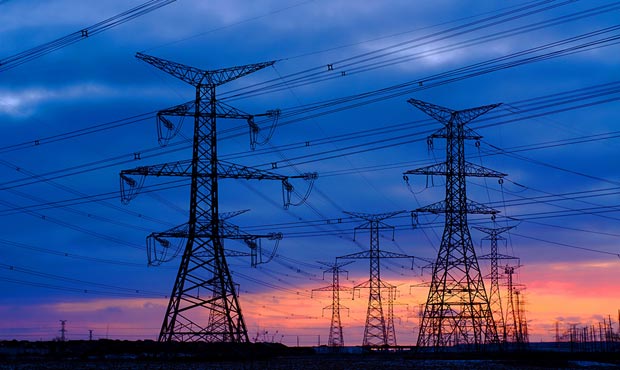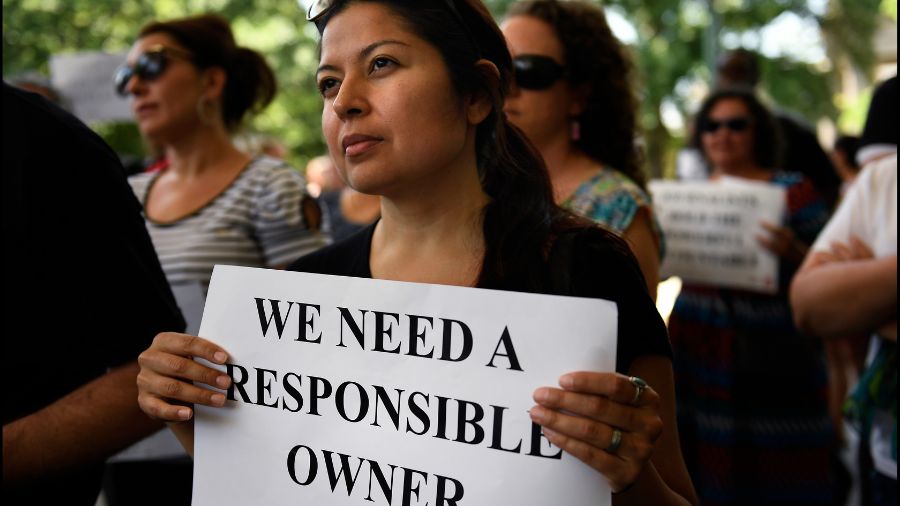How climate change threatens the future of Seattle’s power supply
Apr 13, 2016, 10:42 AM | Updated: 10:43 am

The placement of transmission lines are threatened by climate change, which can alter river and shoreline erosion. (Ian Muttoo, Flickr)
(Ian Muttoo, Flickr)
Seattle’s power utility is already planning ahead to face the potential effects climate change will have on its ratepayers. In fact, Seattle City Light has already experienced a $30 million loss due to unusual weather – weather that is expected to be the norm in the decades to come.
“A year ago it was significant how many days we did not have the high demand for heating (in winter),” said Seattle City Light spokesperson Scott Thomsen. “It was so much warmer that it added up to about $30 million in lost revenue for the utility.”
The winter of 2014-15 may be a peek into Seattle’s future as climate change continues to push temperatures higher.
“It was about four or five degrees, on average, above normal that winter,” said Seattle City Light Strategic Advisor Crystal Raymond. “That is consistent with what we expect to be normal conditions in the middle of the century.”
Related: Seattle climatologist: Time to get real about climate change issues
Winter is the money-making season for power utilities in the Northwest — when colder weather translates into more heating costs and darker nights mean the lights stay on longer. Those are the types of factors Seattle City Light considers in its new Climate Change Vulnerability Assessment and Adaptation plan.
“(It’s) basically evaluating how the utility could be affected by climate change and developing actions to take to reduce the impacts of climate change,” Raymond said.
The document covers a range of risks: from natural disasters to changes in weather patterns. It amounts to the maxim that if you want to address a problem, you first have to admit you have one.
Now that the utility knows its vulnerabilities, it knows where to focus its resources. The next steps will include two years of study, expanding awareness of climate change at the utility and with its customers, and developing an implementation strategy. That could include changing the model of how power is generated and adjusting for financial impacts.
In the end, if weather threatens Seattle City Light’s bottom line it can trickle down to customers’ bills who will ultimately pick up the check.
Risks
The Cascade Mountains aren’t just for scenic views around the Puget Sound. They also act as a battery by storing snow pack. Climate change is expected to push the snow line to higher elevations and cause more precipitation to fall as rain instead of snow. Since Seattle City Light gets 90 percent of its power from hydroelectric plants, that snow and rain is basically the city’s electricity.
“If we get more of our precipitation — as we’ve seen in the past couple of years — in the form of rain instead of snow, that has impacts on when we can make electricity and how much we can make,” Thomsen said. “If it all comes down at once, we can’t store it and it’s more water in the river than we can use at one time. It just goes by without us making electricity with it. So our total production over the course of the year is reduced. That impacts what we can deliver to our customers.”
Thomsen said that there are some reservoirs to store water for power generation but there isn’t enough capacity for year-round production. What is of further concern is that streams may flow at different times of the year than in the past, which changes when power can be produced. With hydroelectric plants, you are mostly balancing power production with immediate demand for it.
If Seattle’s supply of water for electricity is not totally threatened, its revenue model is. Not all power produced by Seattle City Light is used by the utility. Since 2000, it has often sold electricity wholesale to other utilities. That profit means local customers have lower rates.
“Our ability to sell more electricity in the summer when there’s higher demand in places like California and air conditioning is a big consideration, that helps bring in revenue that keeps customers’ rates low,” Thomsen said. “If we have less of that electricity available to sell, that’s where it will come back and hurt our bottom line, which hinders our ability to keep rates low for customers.”
On the opposite side of that issue is winter, when Seattle City Light lost millions in 2014-15 because the city had less of a need to heat its homes and businesses. It all adds up to less revenue.
Two power projects — the Cedar Falls and South Fork Tolt plants — are likely to be impacted first as they are lower in elevation. The higher elevation projects — Boundary, Skagit and the Bonneville Power Administration — will be affected at a later date.
Other concerns
While revenue and power production is among the chief concerns of Seattle City Light’s adaptation report, there are other worries. The area’s infrastructure is at risk from landslides, wildfires and more. Other concerns include:
• Natural hazards such as landslides harm energy delivery by damaging infrastructure.
• Rising sea levels threaten electric infrastructure and transmission lines near the shoreline.
• Rivers running higher means that transmission lines following the path of rivers may have to be moved, as the towers could be threatened. The utility recently experienced moving lines because of erosion.
• Heat from wildfires can damage transmission lines. Wildfires last summer near the Skagit power plant damaged transmission lines causing them to be taken offline. That caused hundreds of thousands of dollars in impacts each day it was down.
• Warmer temperatures mean power lines don’t cool down as often decreasing their life expectancy. It also dries out soils more often which can increase damage to underground lines.













